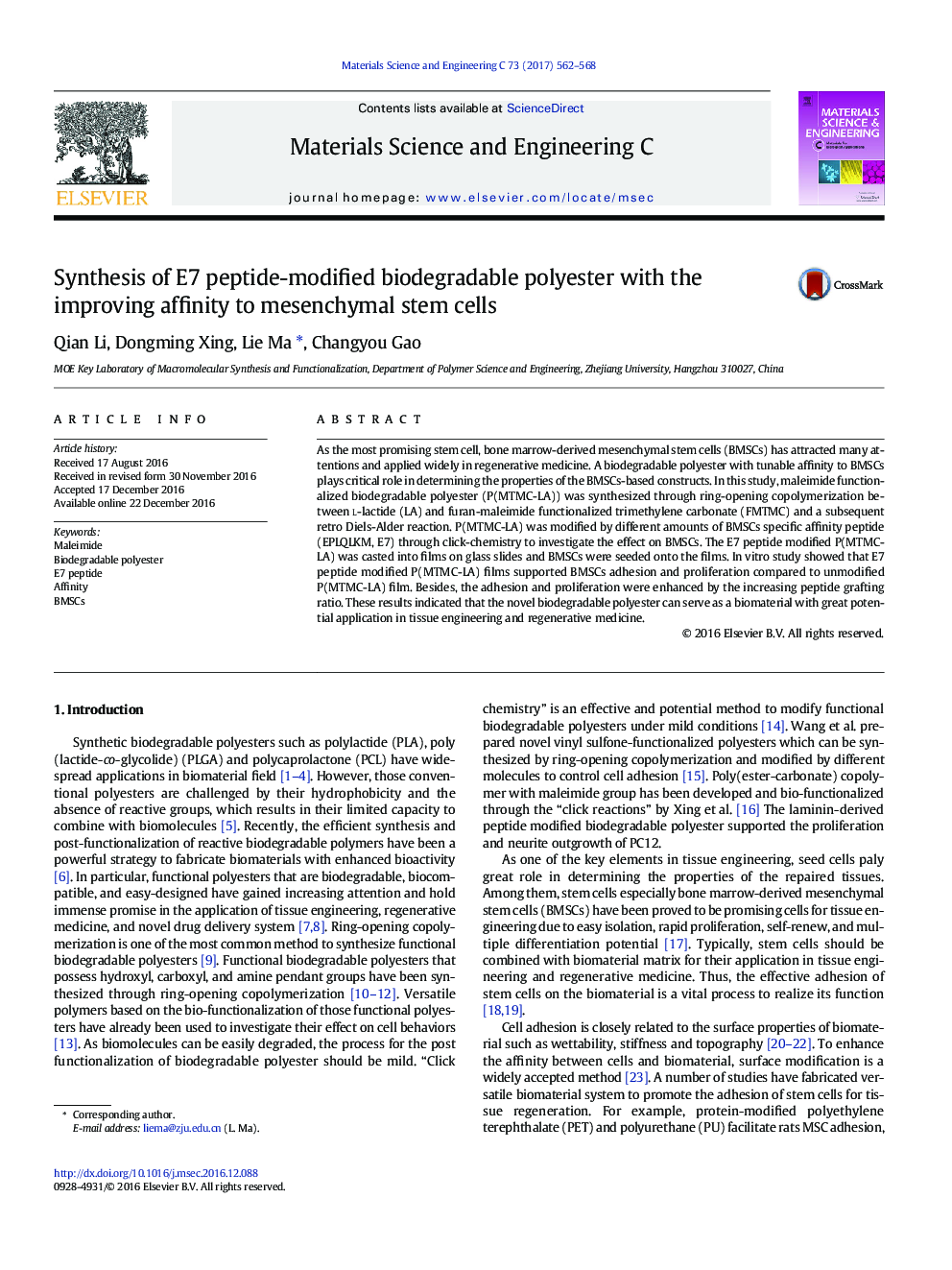| کد مقاله | کد نشریه | سال انتشار | مقاله انگلیسی | نسخه تمام متن |
|---|---|---|---|---|
| 5434962 | 1509148 | 2017 | 7 صفحه PDF | دانلود رایگان |

- P(MTMC-LA) was synthesized through ring-opening copolymerization and retro Diels-Alder reaction.
- P(MTMC-LA) was modified by dBMSCs specific affinity peptide (EPLQLKM, E7) through click-chemistry.
- E7 peptide modified P(MTMC-LA) films supported BMSCs adhesion and proliferation.
As the most promising stem cell, bone marrow-derived mesenchymal stem cells (BMSCs) has attracted many attentions and applied widely in regenerative medicine. A biodegradable polyester with tunable affinity to BMSCs plays critical role in determining the properties of the BMSCs-based constructs. In this study, maleimide functionalized biodegradable polyester (P(MTMC-LA)) was synthesized through ring-opening copolymerization between l-lactide (LA) and furan-maleimide functionalized trimethylene carbonate (FMTMC) and a subsequent retro Diels-Alder reaction. P(MTMC-LA) was modified by different amounts of BMSCs specific affinity peptide (EPLQLKM, E7) through click-chemistry to investigate the effect on BMSCs. The E7 peptide modified P(MTMC-LA) was casted into films on glass slides and BMSCs were seeded onto the films. In vitro study showed that E7 peptide modified P(MTMC-LA) films supported BMSCs adhesion and proliferation compared to unmodified P(MTMC-LA) film. Besides, the adhesion and proliferation were enhanced by the increasing peptide grafting ratio. These results indicated that the novel biodegradable polyester can serve as a biomaterial with great potential application in tissue engineering and regenerative medicine.
Journal: Materials Science and Engineering: C - Volume 73, 1 April 2017, Pages 562-568